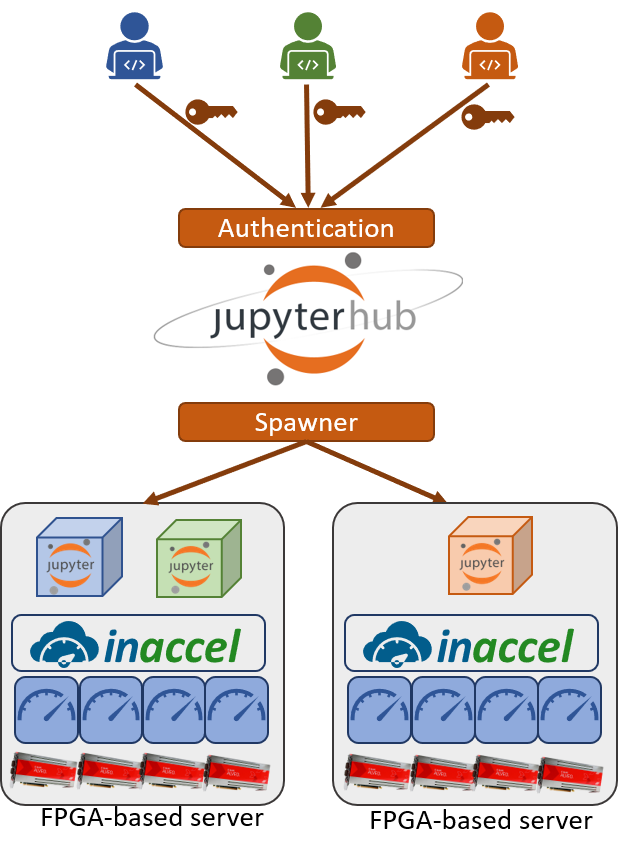 Today InAccel annnounced that it has integrated JupyterHub into the company’s adaptive acceleration platform for FPGAs. InAccel provides an FPGA resource manager that allows the instant deployment, scaling and virtualization of FPGAs making easier than ever the utilization of FPGA clusters for applications like machine learning, data processing, data analytics and many more HPC workloads.
Today InAccel annnounced that it has integrated JupyterHub into the company’s adaptive acceleration platform for FPGAs. InAccel provides an FPGA resource manager that allows the instant deployment, scaling and virtualization of FPGAs making easier than ever the utilization of FPGA clusters for applications like machine learning, data processing, data analytics and many more HPC workloads.
Jupyter Notebook is an open-source web application that allows you to create and share documents that contain live code, equations, visualizations and narrative text. Uses include data cleaning and transformation, numerical simulation, statistical modeling, data visualization, machine learning, and much more. Due to its simplicity it has gained wide popularity among the data scientists and the HPC users that want to create and share applications that integrates the code, the comments and the results of the application.
JupyterHub brings the power of notebooks to groups of users. It gives users access to computational environments and resources without burdening the users with installation and maintenance tasks. Users – including students, researchers, and data scientists – can get their work done in their own workspaces on shared resources which can be managed efficiently by system administrators.
JupyterHub runs in the cloud or on your own hardware, and makes it possible to serve a pre-configured data science environment to any user in the world. It is customizable and scalable, and is suitable for small and large teams, academic courses, and large-scale infrastructure.
Through the JupyterHub integration, users can now enjoy all the benefits that JupyterHub provide such as easy access to computational environment for instant execution of Juputer notebooks. At the same time, users can now enjoy the benefits of FPGAs such lower-latency, lower execution time and much higher performance without any prior-knowledge of FPGAs. InAccel’s framework allows the use of Xilinx’s Vitis Open-Source optimized libraries or 3rd party IP cores (for machine learning, data analytics, genomics, compression, encryption and computer vision applications.)
JupyterHub using InAccel’s FPGA orchestrator can be used either on-prem (e.g. supporting the powerful Xilinx Alveo card) or on the cloud (e.g. AWS, Azure, and Alibaba). That way, users can enjoy the simplicity of the Jupyter notebooks and at the same time experience significant speedups on their applications.






